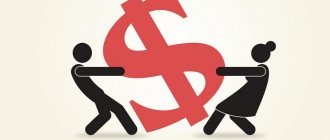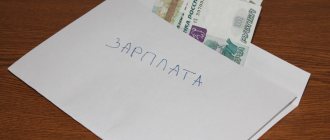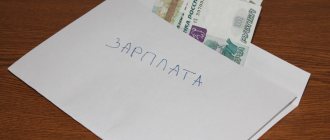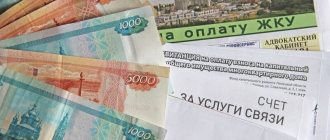What could happen to the hero of the series about the individual entrepreneur, the owner of the dumpling production, Evgeniy?
An incorrect calculation or simply failure can lead to the fact that the individual entrepreneur will not be able to repay the loan or pay salaries to employees, that there will be nothing to pay suppliers with, or that someone will need to compensate for the damage caused.
What is the risk of losing the individual entrepreneur?
In the best case, Evgeniy will not make a profit, and in the worst case, he will have to meet his obligations with his own savings and property: real estate, transport, land plots and securities.
How can Evgeniy not lose his money and apartment? Can trouble be prevented or risks minimized when the business encounters problems?
We will help our businessman figure everything out and avoid getting into a risky situation.
Why is only the individual responsible for his debts?
Individual entrepreneurs are registered with the tax office. An application is submitted there using form P21001. With this statement, the person confirms that he is ready to be responsible for the affairs of the individual entrepreneur. This is how the Constitutional Court of the Russian Federation explained it in Determination No. 164-O.
The authenticity of the signature on the application is checked by a notary, tax inspector or MFC specialist. As an option, the application is signed electronically and sent via the Internet. But before this, the person’s identity has already been verified at the certification center that issued the signature.
The owner of an individual entrepreneur is considered to be the person who signed and submitted the application for registration. It is from him that the tax authorities, bailiffs and suppliers will ask for debts. There are no exceptions in the laws. Even if the individual entrepreneur is open to the wife, and the husband runs the business.
The individual entrepreneur is liable for debts with all his property. And it may turn out that for debts for renting an office for a real estate agency, a person’s personal car and salary on the card will be seized. A person’s property as an individual and as an individual entrepreneur is not differentiated - Art. 24 of the Civil Code of the Russian Federation and clause 55 of the Resolution of the Plenum of the Armed Forces of the Russian Federation No. 50.
But there is still property that cannot be taken away. This is the debtor's only housing, inexpensive home furniture and clothing. The full list is in Art. 446 Code of Civil Procedure of the Russian Federation.
The signature rule also works in the opposite direction. If a person has not signed an application to open an individual entrepreneur, he is not liable for debts. This happens when fraudsters register an individual entrepreneur to cash out money or obtain loans using stolen passports or fake electronic signatures. If this is your case, write a statement to the tax and police. Forgery of a signature is easy to prove. The truth is on your side.
Full property liability WITHOUT bankruptcy
Subject: the person who controls the company at fault
Liability: civil liability for causing damage to the state in the form of unpaid taxes
What is provided for: general rules on liability, taking into account the position of the courts (Resolution of the Constitutional Court dated December 8, 2017 No. 39-P; Determination of the Supreme Court of the Russian Federation dated January 27, 2015 No. 81-KG14-19)
In the arsenal of regulatory authorities there is another serious tool for collecting arrears, namely: recovery of damages from individuals controlling the organization in the framework of a criminal case.
Taking into account the positions of the highest courts (Determination of the Supreme Court of the Russian Federation dated January 27, 2015 No. 81-KG14-19, Resolution of the Constitutional Court of the Russian Federation dated December 8, 2017 No. 39-P), the scheme for collecting additional assessments for tax audits may look like this:
If the organization did not appeal the results of the audit in court or appealed, but the court supported the tax inspectorate and found the organization guilty of committing a tax offense, in case of non-payment, the inspectorate may resort to bankruptcy proceedings and declare that the persons controlling the debtor are held vicariously liable (details are still to come) .
At the same time, if a tax offense contains signs of a criminal offense (Article 199, Article 199.1, 199.4 of the Criminal Code of the Russian Federation), then the persons controlling the organization may be required to compensate for the damage caused by their actions to the budget.
The obligation to compensate for the damage caused to the budget will remain, even if the criminal case against the controlling persons (director, founder, member of the Board of Directors) was terminated on so-called non-rehabilitative grounds - due to the expiration of the statute of limitations for bringing to criminal liability (under Part 1 of Article 199 of the Criminal Code of the Russian Federation it is only 2 years) or due to an act of amnesty.
However, the tax authority will be able to demand compensation for damage only if all mechanisms for collection have been exhausted, including if the arrears could not be recovered as part of the bankruptcy of the organization (Determination of the Investigative Committee for Civil Cases of the Supreme Court of the Russian Federation dated March 2, 2021 No. 73-KG20 -5-K8 in case No. 2-2686/2019). For other details and nuances, click here.
What debts will you have to pay?
The debts of an individual entrepreneur depend on whether they worked through him or not.
If you didn’t work through an individual entrepreneur
A non-working individual entrepreneur accumulates debts on insurance premiums for himself. These are mandatory payments to the tax office to accumulate a pension and the opportunity to go to the clinic. They are paid at least once a year.
You cannot refuse to pay insurance premiums. Lack of business income is also not an excuse. In 2021, individual entrepreneurs pay 40,874 ₽ until December 31. If an individual entrepreneur has worked for less than a full year, contributions will be reduced. For delays, the tax office calculates penalties and fines.
Also, an individual entrepreneur submits an income declaration to the simplified tax system once a year, even if he has not earned anything. If the declaration is not submitted, the tax office will fine you 1,000 rubles under Art. 119 of the Tax Code of the Russian Federation.
You can quickly find out the full amount of debt to the tax office on State Services in the Tax Debt section or on the tax office website in your personal account. Or go to the tax office at your place of residence and find out about debts at the inspector’s window.
Sooner or later, the tax office will find the bank account or personal card of the individual entrepreneur, block the money and write off the debt.
If you conducted business through an individual entrepreneur
When you traded in a store or built houses through an individual entrepreneur, in addition to taxes, debts for rent, utilities, wages, taxes for employees, for goods, for loans and for the simplified tax system may accumulate.
Individual entrepreneurs may also have fines from government agencies. For example, from Rospotrebnadzor - when a store ignored sanitary regulations and sales rules, and one of the buyers wrote a complaint.
But these debts may not exist. Depends on whether the real business owner paid his counterparties or not.
Typically, a fake individual entrepreneur finds out about the debts after the tax office has blocked the account, a letter from the bank, or a subpoena from the court. Sometimes bailiffs come, which means the bank or tenant has already won the court and received a writ of execution. Now the bailiffs are looking for apartments and cars of individual entrepreneurs.
It is important to understand the following. If a fake individual entrepreneur signed contracts with suppliers, tenants, a bank, or employment contracts with employees, it is considered that he, and not the real owner of the business, entered into them. The same applies if contracts were concluded by proxy from an individual entrepreneur. It will not be possible to hold accountable the person who took the money for himself. Whoever signed the contract is responsible.
Here is an example of how a fake individual entrepreneur got into money.
The court recovered 97,000 rubles from the individual entrepreneur for unfulfilled work. The debt appeared like this. A man registered an individual entrepreneur at the suggestion of a friend. We started installing interior doors together, but the business didn’t stick together. The friend still had the signed contract forms. He continued to work on behalf of someone else's individual entrepreneur. I took an advance payment from one client, but never installed all the doors. She went to court with an agreement signed by the individual entrepreneur. At that time, my friend was imprisoned on another matter. The debt for the doors and the fine for violating consumer rights were collected from the individual entrepreneur. Although he didn’t even receive money - case No. 33-13202/2018.
Responsibility for “that guy”
Subject: any interdependent person (legal and physical)
Responsibility: full liability for the organization’s debts
What is provided for: Art. 45 Tax Code of the Russian Federation
Today, transferring financial and economic activities to another (formally independent) operating company with the concealment of the actual owners of the companies behind nominees does not give anything if you intended to “cut off the tails” in the form of accumulated tax risks.
If arrears are identified as part of a tax audit, the tax authorities may submit a demand to the court to recognize the new operating company as dependent and recover from it the entire amount of the registered tax debt of the “abandoned” company.
This requires two conditions:
1) Dependence of companies established in court.
Evidence of such dependence may be (Definition of the Investigative Committee for Economic Disputes of the Supreme Court of the Russian Federation dated September 16, 2021 in case No. A40-77894/2015, Resolution of the Arbitration Court of the Central District dated August 1, 2021 in case No. A54-382/2018, Resolution Arbitration Court of the Ural District dated November 18, 2020 in case No. A76-21416/2019):
- registration of a newly created operating company during an on-site tax audit of an existing operating company;
- the presence of a common founder and director of companies or mutual participation of companies in each other’s authorized capital (by the way, this is not a mandatory criterion at all);
- companies have the same physical addresses, contact numbers, email addresses, websites, types of activities, trademark;
- accounts are opened in the same banks;
- the newly created company begins to work with counterparties of the first operating company on the same contractual terms;
- the original company cedes its rights under concluded agreements to a newly created operating company or terminates previously concluded agreements with all or most of its counterparties, and the newly created company enters into similar agreements with them in a short period of time;
- transfer of all employees from the existing company to the newly created organization;
- the property is transferred to the dependent company;
- transfer by counterparties to the newly created company of revenues previously transferred to the existing operating company;
- other circumstances indicating that the new company is identical to the old company.
2) Receipt of proceeds or property of the debtor into the accounts of the dependent company.
And we are talking here not only about simply receiving a dependent from a third party. Termination of contracts and conclusion of contracts with the same counterparties on behalf of a new organization on comparable terms also meets this condition!
Under these circumstances, parent and subsidiary companies, as well as formally independent, but having signs of a “duplicate” company, are liable for the tax evader in full. That’s what we call it: responsibility “for that guy.”
At the same time, the burden of tax liability for the defaulting company, if the above conditions are met, is borne by both legal entities and individuals.
Is it somehow possible to shift responsibility to the person who worked under the individual entrepreneur?
It will not be possible to transfer the debt for insurance premiums to the actual owner. Contributions go to individual accounts in the Pension Fund and the Health Insurance Fund. Then, from this money (even if it is forcibly taken away by the tax authorities), the person will receive a pension and medical care under the policy.
There is a small chance of not paying under the contracts. You can also file a police report against the actual owner of the business if he cheated. We will outline each possibility. But you need to discuss your situation with a lawyer.
Agreements that the individual entrepreneur did not sign
An individual entrepreneur is not obliged to pay under contracts that he did not sign. This can happen when the actual owner of the business forged a signature, and did not call the individual entrepreneur every time to sign the agreement. For example, I bought goods in installments and signed the delivery agreement and invoices imitating the signature of an individual entrepreneur.
If the counterparty sues the individual entrepreneur for a debt from such an agreement, you must ask the court for a handwriting examination. Experts will write a conclusion that this signature is not an individual entrepreneur, and the court will not collect the debt.
Agreements for which the individual entrepreneur did not issue a power of attorney
It often happens that the actual owner of a business conducts business on behalf of a fake individual entrepreneur by proxy. It states what transactions he can enter into.
If the representative has concluded agreements that are not included in the power of attorney, he himself will pay for them - Art. 183 Civil Code of the Russian Federation. For example, an individual entrepreneur issued a power of attorney for the purchase of building materials for 100,000 rubles. And the representative bought goods in installments for a million and did not pay.
If a supplier in court asks an individual entrepreneur for a million, it must be said that the representative went beyond his authority. Then the debt will be transferred to the representative.
Fraud Claim
If a person has been deceived by a fake individual entrepreneur, you can file a fraud report with the police. The chance that a criminal case will be opened against the business owner and imprisoned is small. If a person filed an application with the tax office, signed contracts and withdrew money from accounts for interest, investigators are unlikely to see the fraud. But it's worth a try.
If investigators prove fraud, then the business owner can recover the lost money, in addition to insurance premiums for himself. This is called a civil claim in a criminal trial. But once again, the chances are slim. And you can’t do it without working closely with a lawyer.










